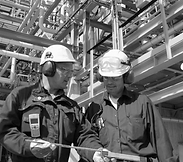Engineering and Technology Quarterly Reviews
ISSN 2622-9374




Published: 14 September 2020
Comparative Study of Water Quality From Boreholes and Hand-Dug Wells: Case of Namatapa in Bangwe Township
Jabulani Matsimbe
University of Malawi

Download Full-Text Pdf
10.5281/zenodo.4026763
Pages: 67-73
Keywords: Coliforms, Groundwater, Malawi, Physicochemical
Abstract
Access to safe drinking water is a major problem in Malawi. Residents in Bangwe Township use water from boreholes and hand-dug wells for consumption. The question that arises is how safe is this water. Present study seeks to comparatively assess water quality from boreholes and hand-dug wells located at Namatapa, Bangwe Township. Water samples from two boreholes at 1 km apart and two hand-dug wells at 1.1 km apart were analysed for physicochemical and biological parameters using recommended methods. Sampling was done in the wet season over a period of three months. Results showed that coliforms exceeded the recommended guideline values for drinking water according to World Health Organisation and Malawi Bureau of standards. Values in excess of 462 cfu/100 ml and 10 cfu/100ml were observed in hand-dug wells and boreholes respectively. Suspended solids, Turbidity, pH, Nitrate and Total dissolved solids were all within the acceptable limits. The study results demystify the community belief that borehole water is always safer than hand-dug well water. Therefore, there is a need for authorities to provide portable water in the area so that residents should stop consuming untreated water from boreholes and hand-dug wells.
References
Adekunle IM, Adetunji MT, Gbadebo AM, Banjoko OB (2007). Assessment of Groundwater quality in a typical rural settlement in southeast Nigeria. International Journal of Environmental Research and Public Health 4(4):307-318.
Alexander P. (2008). Evaluation of ground water quality of Mubi town in Adamawa State, Nigeria. Afr. J. Biotechnol. 7:1712-1715.
American Public Health Association (APHA) (2017). Standard methods for the examination of water and wastewater (23rd Edition), APHA, ISBN 0875532233, Washington DC.
Efe S. I. (2008). Quality of water from hand-dug wells in Onitsha metropolitan area. J. Environ. Sci. 6(23):5-12.
Inanc B., Kinaci C., Sevimli M. F., Arikan O. & Ozturk M. (1998). Pollution prevention and restoration in the Golden Horn of Istanbul. Water Sci. Technol. 37(8):137-144.
Kalua PWR, Chipeta WPC (2005). ‘A Situation Analysis of Water Sector in Malawi.’ A paper presented at the workshop on Situation Analysis of Water Sector in Malawi.
Kaonga C, Kambala C, Mwendera C, Mkandawire T (2013). Water quality assessment in Bangwe Township, Blantyre City, Malawi. African Journal of Environmental Science and Technology, DOI: 10.5897/AJEST12.196
Malawi Bureau of Standards (2005). Malawi standard; drinking water – specification. Malawi Standards Board, MS 214:2005.
Malawi Government (2005). Ministry of water development and irrigation, National Water Policy. Lilongwe: Ministry of Irrigation and Water Development
Mtewa AGK (2017). Antibacterial potency stability, pH and phytochemistry of some Malawian ready-to-serve aqueous herbal formulations used against enteric diseases. International Journal of Herbal Medicine 5(3):01-05.
Mtewa T, Chauluka F, Mtewa A, Banda L, Kalindekafe L (2018). Water quality assessment of various sources in Periurban areas of Malawi: A case of Bangwe township in Blantyre. African Journal of Environmental Science and Technology, DOI: 10.5897/AJEST2018.254
WHO (2011). Guidelines for drinking-water quality, fourth edition. Geneva: World Health Organization (http://www.who.int/water_sanitation_health/ publications/2011/dwq_guidelines/en/, accessed 13 August 2020).
Mkandawire T, Banda E (2009). Assessment of drinking water quality of Mtopwa village in Bangwe Township, Blantyre. Journal of Desalination, DOI: 10.1016/j.desal.2008.05.101



